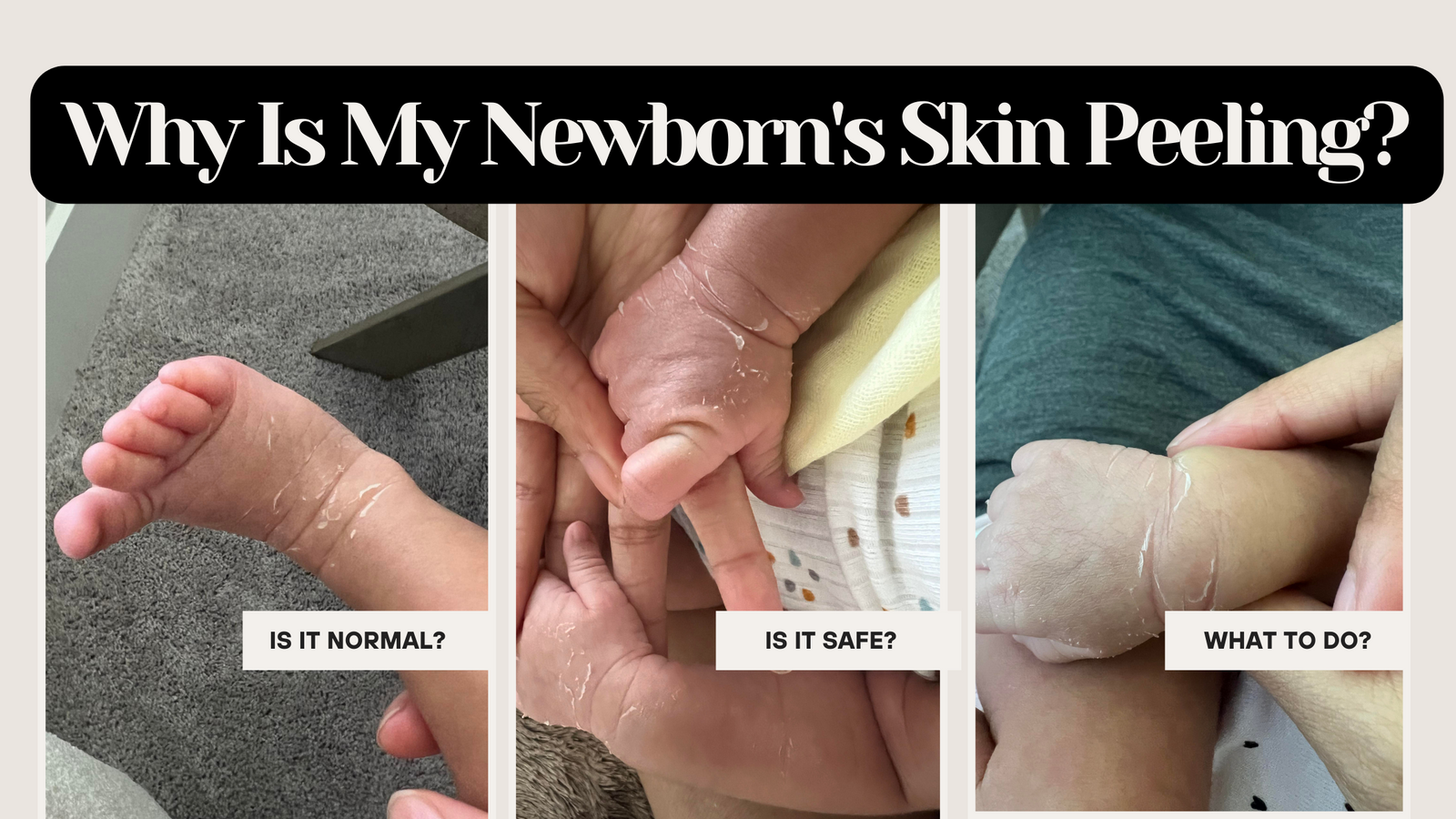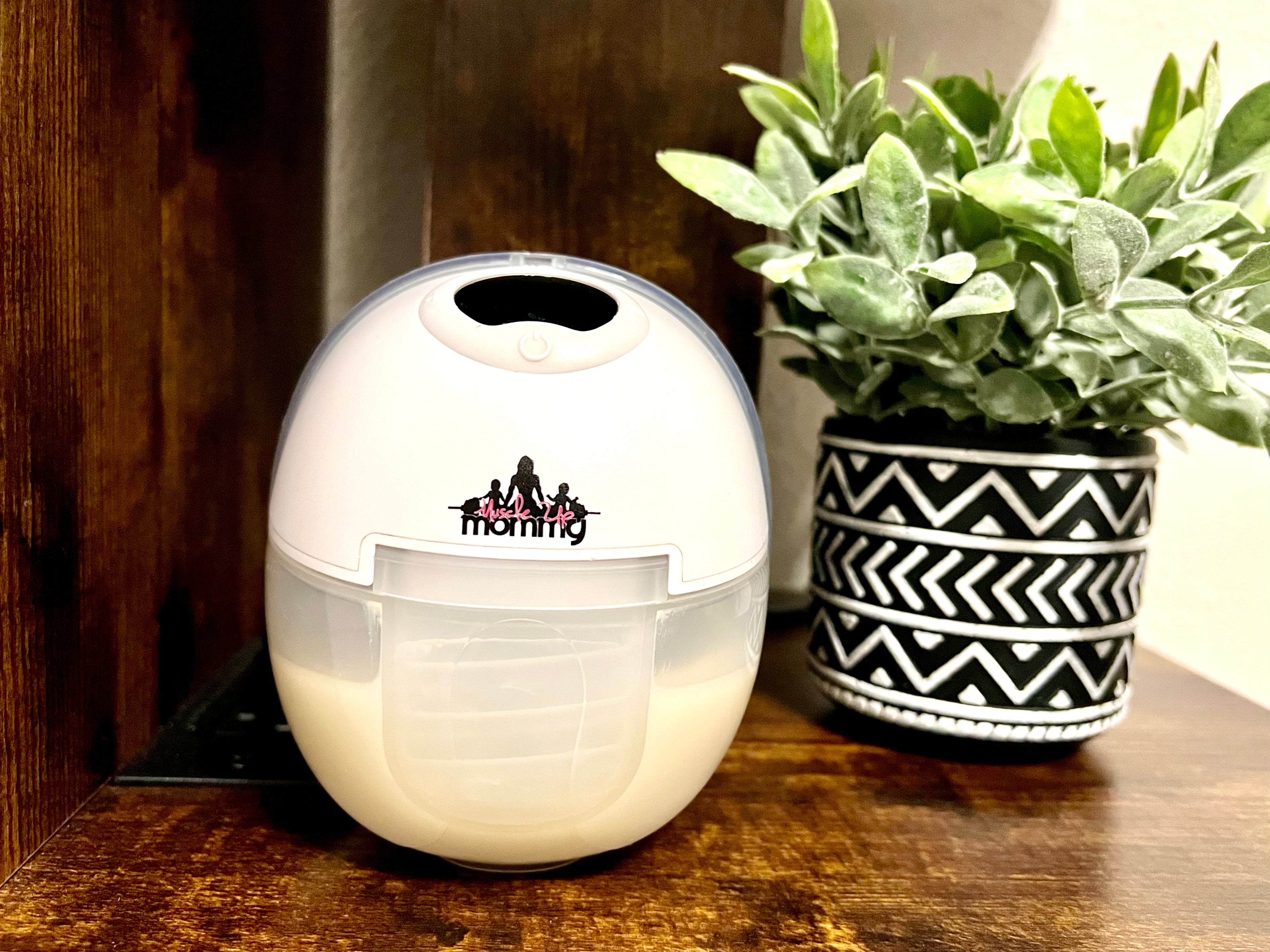My Newborn Skin Is Shedding: Causes and Remedies

Entering into a new stage of motherhood with a newborn is noticing all the little things and wondering if it's normal or if there's something I'm doing wrong. Lately, I've been noticing my newborn's skin shedding and here's what I've found out.

In this Article:
Why Is My Newborn Peeling?
Newborn shedding is quite normal. Life outside the womb requires some thick skin to combat all the natural ailments in the earth, and thus shedding will occur.
I know...the unsightly peeling may look scary but this shedding is necessary to coat your newborns skin with skin that is more resilient and suitable for life on the outside.
You can expect your newborn to shed within the first two to three weeks after birth.
This process is natural and will take course on it's own.
Causes
During gestation, your newborn is surrounded by amniotic fluid that helps protect the baby while inside the womb. This liquid substance not only coats your infant's skin but also helps to pass nutrients from mom to baby.
Over time, amniotic fluid will set in to provide an antibacterial layer to your baby's skin, helping to act as a protective lubricant during child birth.
During child birth, this fluid appears as a white waxy substance that protects your infant's skin.
Once your baby is born, you'll notice that your baby's skin feels delicate and extremely soft, which is why that outer layer peels to avoid becoming irritated easily.
Common Symptoms of Dry Skin
Dry skin isn't fun in infants or adults. You'll want to moisturize well to prevent dry skin from happening or spreading. Some common symptoms of dry skin include:
- Itchy
- Cracked, Dry or Peeling skin
- Skin appears inflamed and irritated (red in color)
- Rash
Remedies
This peeling/shedding process is natural, but there are some things you can do to help baby while this peeling is taking place.
- Avoid long baths in the tub.
- Use Lukewarm water.
- Use baby safe body wash.
- Use oil after a bath to moisturize the skin.
It's recommended to keep your infant's skin moisturized, as this can help prevent dry skin and reduce any irritation that can occur.
How does breastmilk affect dry skin?
Breastmilk generally does not affect skin, unless there is a known allergen that is present in milk. Otherwise, breast milk can be a natural remedy for an infant's dry skin and peeling because it contains nourishing and healing properties that benefit the skin. Here's how breast milk can help:
Moisturizing : Breast milk contains fats and essential nutrients that can hydrate and moisturize a baby’s skin. Applying a small amount to dry or peeling areas can soothe the skin and lock in moisture.
Antibacterial Properties : Breast milk has natural antibacterial agents like lactoferrin and immunoglobulins that can help protect against infection and promote healing in irritated or dry skin areas.
Anti-inflammatory Effects : The anti-inflammatory components in breast milk, such as oligosaccharides , can reduce redness and soothe inflammation on an infant's skin.
Healing Peeling Skin : Newborns often experience peeling skin as they shed the outer layer from being in the womb. Applying a bit of breast milk can help accelerate the healing process and protect the skin barrier as it adjusts to the environment.
To use breast milk on your baby's skin, simply express a small amount and gently apply it to the affected areas. Let it air dry or rub it in gently, and you may notice the skin becoming more supple and less irritated over time.
It's an easy, natural, and gentle solution for delicate baby skin!
Muscle Up Mommy J35 Wearable Pump is extremely ideal for extracting breastmilk for skincare remedies like those for baby's dry skin because of its:
- Hands-Free Design, efficient for pumping on the go.
- Quiet and Discreet operation.
- Gentle on Sensitive Breasts
- Portable and Compact
- Hygienic and easy to clean
- Efficient Milk Expression
- Rechargeable Battery
These features make the J35 wearable pump a practical and essential tool for moms looking to provide breastmilk not only for nourishment but also as a natural remedy for skincare concerns like dry or peeling skin.
Other Things You Can Do To Help Your Newborn's Peeling Skin?
Although it may look tempting, avoid picking at your newborn's peeling skin so that you don't mistakenly cause bleeding or irritation.
Other things you can do to help your newborn's skin are:
- Avoid super cold temperatures. Think about the winter time when your lips and hands get super dry and cracked without proper moisturizer. The same applies here. Avoid cold temps to prevent worsening dryness.
- Use baby moisturizer. Just as you would apply lotion or oil to your body after a bath or shower, you'll want to do the same with baby. Moisturizing helps prevent cracking.
- Limit fragrances. Using gentle baby recommended deodorizers, laundry detergents, and avoiding harsh perfumes or colognes when holding baby will reduce irritation on baby's delicate skin.
- Dress appropriately for the weather. Keep baby out of direct sunlight without proper clothing to prevent sweating and overexposure to water. Also, keeping baby cool and dressed comfortably can help the skin process peeling on it's own much faster.
- Pay attention to the fabrics you use on baby and in bedding. Cooler fabrics will help baby to regulate their body temperature making it less likely to have dry and sensitive skin from sweating.
fabrics for sensitive skin
Dry skin doesn't just affect babies, it affects adults as well. Some great fabric to wear to reduce sweating and dry skin for adults are from Muscle Up Mommy's® activewear collection.







Leave a comment